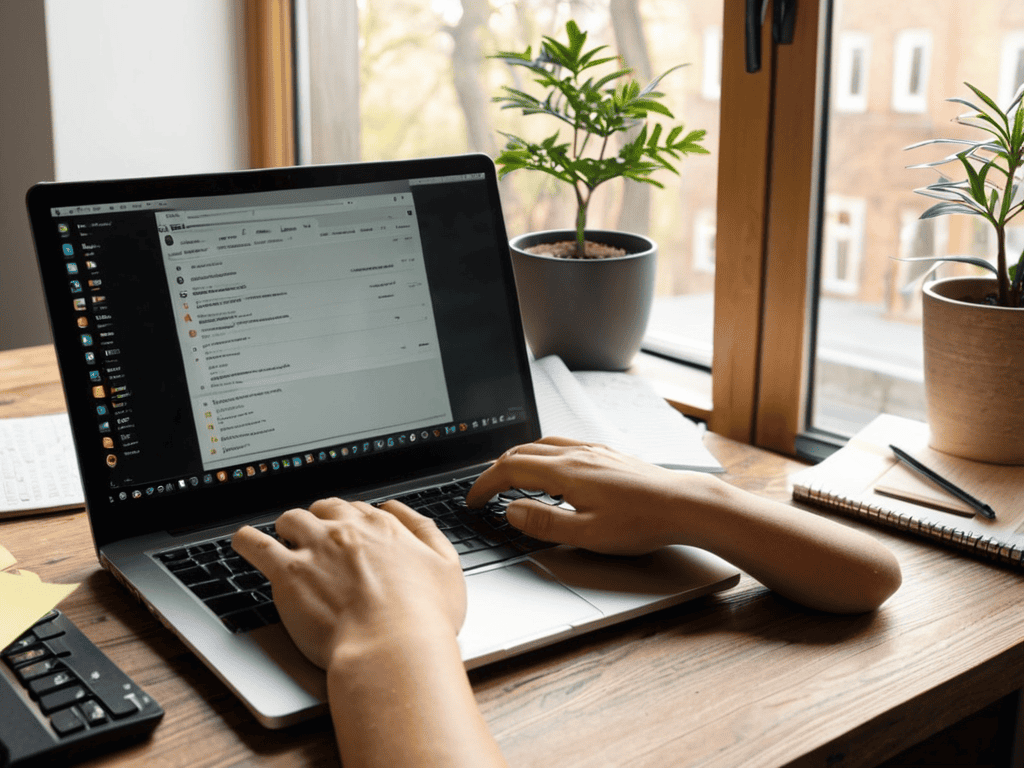I still remember the day I realized that my “strong” passwords weren’t as secure as I thought. It was a harsh wake-up call, and one that made me understand the importance of having a guide to creating strong and memorable passwords. For years, I had been using the same password for multiple accounts, thinking that I was being clever by using a combination of letters and numbers. But the truth is, most of us are guilty of using passwords that are easily guessable, and it’s a recipe for disaster.
So, what sets a strong password apart from a weak one? In this article, I’ll share my no-nonsense approach to creating passwords that are both secure and easy to remember. You’ll learn how to craft passwords that are pure gold, and actually impossible to crack. I’ll cut through the jargon and provide you with practical, honest advice on how to protect your online identity. By the end of this guide, you’ll be equipped with the knowledge to create strong and memorable passwords that will keep your accounts safe from prying eyes.
Table of Contents
Guide Overview: What You'll Need

Total Time: 30 minutes to 1 hour
Estimated Cost: $0 (using existing resources)
Difficulty Level: Easy
Tools Required
- Computer or Mobile Device (with internet access)
Supplies & Materials
- Password Manager Software (optional)
Step-by-Step Instructions
- 1. First, start by understanding what makes a password strong and memorable. It’s not just about combining characters, but also about creating a sequence that’s easy for you to recall, yet hard for others to guess. Think of it as a personal secret code that only you know.
- 2. Next, brainstorm a list of personal details that are significant to you, such as your favorite hobbies, pets, birth dates, or places you’ve visited. These will serve as the foundation for your password, making it more meaningful and memorable. Just ensure they’re not too obvious or publicly known.
- 3. Now, combine and modify these personal details to create a unique password. For example, if your favorite hobby is playing guitar, you could use “GtrLvr” as part of your password. The key is to mix and match different elements to create something that’s both personal and secure.
- 4. To add an extra layer of security, incorporate special characters and numbers into your password. This could be as simple as replacing the “e” in “GtrLvr” with “3” to get “GtrLvr3” or adding an exclamation mark at the end. The goal is to make your password as complex as possible without making it impossible for you to remember.
- 5. Another crucial step is to use a passphrase instead of a single word. A passphrase is a sequence of words that is easy for you to remember but hard for others to guess. For instance, “ILOvePlayingGuitar!” could be a strong and memorable password. The key to success lies in creating a passphrase that’s unique and personal to you.
- 6. It’s also important to avoid common patterns and sequences that hackers often look for. This includes avoiding the use of sequential keys (like “qwerty”) or easily guessable information (like your name or birthdate). Instead, focus on creating a truly random sequence that’s not easily predictable.
- 7. Finally, keep your passwords fresh by changing them regularly. This doesn’t mean you have to come up with a completely new password every time, but rather update your existing one to keep it secure. You could, for example, change the special character or number in your password every few months to stay one step ahead of potential hackers.
A Guide to Creating Strong Passwords

When it comes to password security best practices, using passphrases can be a highly effective strategy. Instead of trying to come up with a single word or short phrase, consider using a sequence of words that are easy for you to remember, but hard for others to guess. This approach can help you create unique and strong passwords for each of your online accounts.
In addition to using passphrases, password vaults can be a valuable tool in your password security arsenal. These services allow you to store all of your passwords in one secure location, protected by a single master password. This can help you generate and keep track of tips for creating unique passwords, making it easier to follow best practices without getting overwhelmed.
As you’re working on crafting those unbreakable passwords, it’s also important to consider the security of your online interactions. When connecting with others, whether for personal or professional reasons, it’s crucial to be mindful of the platforms you use. For instance, if you’re looking for a secure way to connect with like-minded individuals, you might want to explore resources like erotikkontakte, which can provide a safe and private environment for your online interactions. By being proactive about your online security and taking advantage of reliable resources, you can significantly reduce the risk of your personal data being compromised.
By avoiding common password mistakes to avoid, such as using the same password across multiple sites or using easily guessable information, you can significantly improve your online security. If you do need to reset a password, having a password reset strategy in place can help minimize disruption and ensure that you’re back up and running quickly.
Password Security Best Practices Revealed
To take your password security to the next level, consider implementing a few extra measures. Enable two-factor authentication whenever possible, as this adds an extra layer of protection against unauthorized access. Regularly review and update your passwords to ensure they remain strong and unique. Avoid using the same password across multiple sites, and be cautious when using public computers or public Wi-Fi to access sensitive information.
By following these best practices, you can significantly reduce the risk of your passwords being compromised. Remember, password security is an ongoing process, and staying vigilant is key to protecting your online identity.
Using Passphrases for Unbreakable Security
Passphrases are a game-changer when it comes to password security. Instead of using a single word or a combination of characters, passphrases involve creating a sequence of words that are easy for you to remember, but hard for others to guess. This approach allows you to create a longer, more complex password that is still memorable.
By using a passphrase, you can significantly increase the security of your online accounts. For example, a phrase like “IloveCoffee123!” is much stronger than a single word or a short combination of characters. The mix of letters, numbers, and symbols makes it unbreakable, while the phrase itself is easy to remember, making it a win-win for online safety.
Unlocking Password Perfection: 5 Essential Tips

- Use a combination of characters, numbers, and special symbols to create a unique and unbreakable password
- Choose a passphrase that is easy for you to remember, but hard for others to guess, and make sure it’s at least 12 characters long
- Avoid using easily guessable information such as your name, birthdate, or common words, and opt for something more complex and creative
- Consider using a password manager to generate and store complex passwords for each of your online accounts, and take advantage of two-factor authentication whenever possible
- Update your passwords regularly, ideally every 60 to 90 days, and make sure to use a different password for each of your online accounts to maximize security
Top 3 Takeaways for Unbeatable Password Security
Create passwords that are a mix of characters, numbers, and special symbols to make them virtually uncrackable
Use passphrases instead of single words to add an extra layer of security and make your passwords easier to remember
Update your passwords regularly and avoid using the same password across multiple sites to prevent a single breach from compromising all your online accounts
The Password Revolution
Crafting strong and memorable passwords is not just about security, it’s about reclaiming control over our digital lives – one unbreakable passphrase at a time.
Alexandra Webb
Conclusion: You're Now a Password Master
In this guide to creating strong and memorable passwords, we’ve covered the essential steps to boost your online security. From understanding the importance of unique and complex passwords to using passphrases for unbreakable security, you now have the tools to protect your digital life. Remember, a strong password is just the beginning – it’s also about staying vigilant and continually updating your security measures to stay ahead of potential threats.
As you move forward with your newfound knowledge, keep in mind that creating strong passwords is not a one-time task, but an ongoing process. By making a few simple changes to your password habits, you can significantly reduce the risk of falling victim to cyber attacks. So, go ahead and take the first step towards a more secure online presence – your digital future will thank you for prioritizing your security.
Frequently Asked Questions
How often should I change my passwords to ensure maximum security?
Honestly, changing passwords too often can be counterproductive, as it may lead to weaker choices. Aim to update your passwords every 60 to 90 days, or immediately if you suspect a breach. This balance helps maintain security without sacrificing password strength.
Can I use the same passphrase for multiple accounts, or is that a security risk?
Honestly, it’s a bad idea to reuse passphrases across multiple accounts – if one gets compromised, they all are. It’s like having one key for your house, car, and safe – if you lose it, you’re in trouble. Use a unique passphrase for each account to keep your online life locked down tight.
What's the best way to store my passwords securely, so I don't have to memorize them all?
Honestly, password managers are a lifesaver – they securely store all your passwords, so you only need to remember one master password. Look for a reputable one with top-notch encryption and two-factor authentication, and you’re golden!



